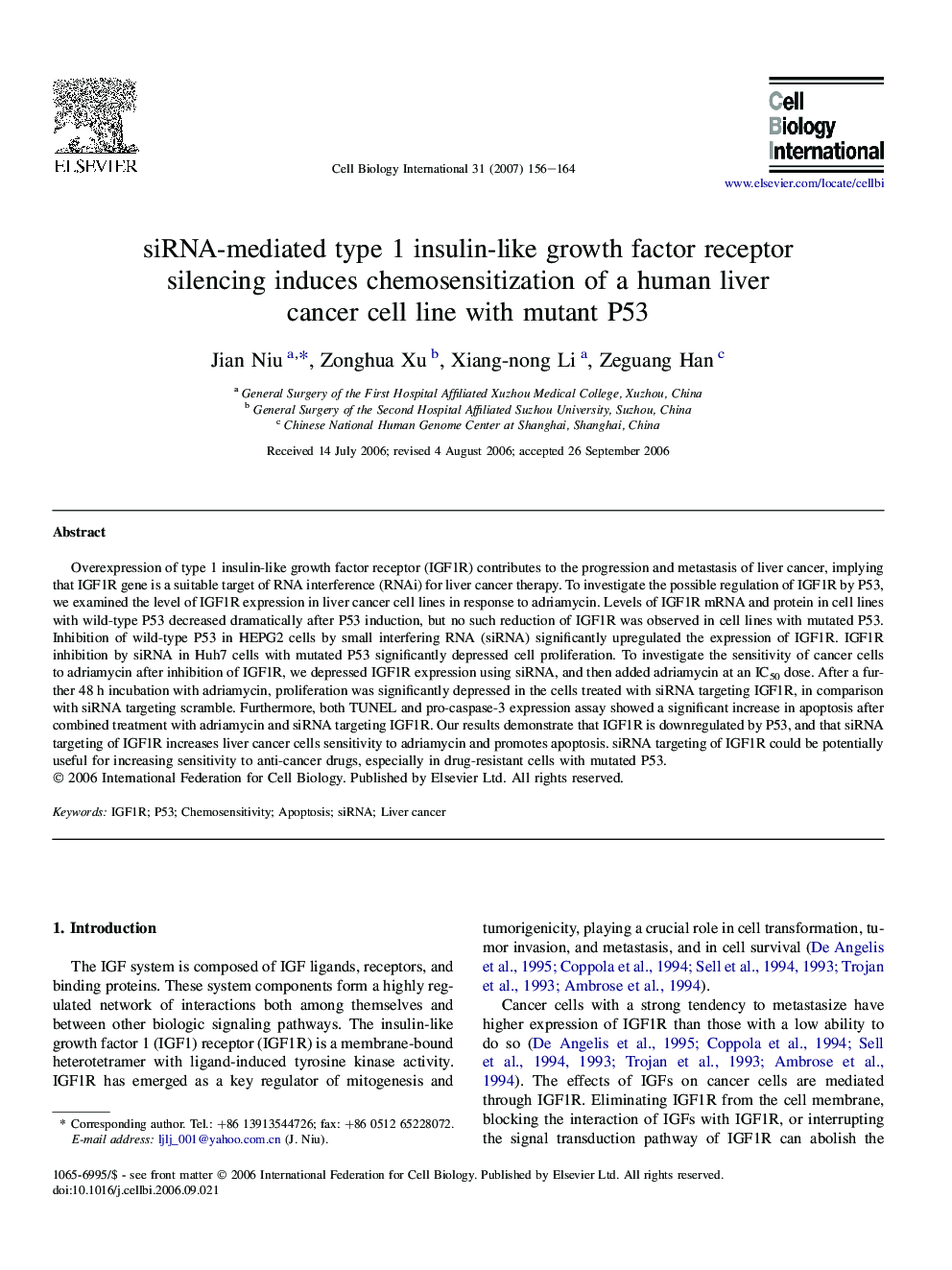| Article ID | Journal | Published Year | Pages | File Type |
|---|---|---|---|---|
| 2067938 | Cell Biology International | 2007 | 9 Pages |
Abstract
Overexpression of type 1 insulin-like growth factor receptor (IGF1R) contributes to the progression and metastasis of liver cancer, implying that IGF1R gene is a suitable target of RNA interference (RNAi) for liver cancer therapy. To investigate the possible regulation of IGF1R by P53, we examined the level of IGF1R expression in liver cancer cell lines in response to adriamycin. Levels of IGF1R mRNA and protein in cell lines with wild-type P53 decreased dramatically after P53 induction, but no such reduction of IGF1R was observed in cell lines with mutated P53. Inhibition of wild-type P53 in HEPG2 cells by small interfering RNA (siRNA) significantly upregulated the expression of IGF1R. IGF1R inhibition by siRNA in Huh7 cells with mutated P53 significantly depressed cell proliferation. To investigate the sensitivity of cancer cells to adriamycin after inhibition of IGF1R, we depressed IGF1R expression using siRNA, and then added adriamycin at an IC50 dose. After a further 48Â h incubation with adriamycin, proliferation was significantly depressed in the cells treated with siRNA targeting IGF1R, in comparison with siRNA targeting scramble. Furthermore, both TUNEL and pro-caspase-3 expression assay showed a significant increase in apoptosis after combined treatment with adriamycin and siRNA targeting IGF1R. Our results demonstrate that IGF1R is downregulated by P53, and that siRNA targeting of IGF1R increases liver cancer cells sensitivity to adriamycin and promotes apoptosis. siRNA targeting of IGF1R could be potentially useful for increasing sensitivity to anti-cancer drugs, especially in drug-resistant cells with mutated P53.
Related Topics
Life Sciences
Biochemistry, Genetics and Molecular Biology
Biophysics
Authors
Jian Niu, Zonghua Xu, Xiang-nong Li, Zeguang Han,
